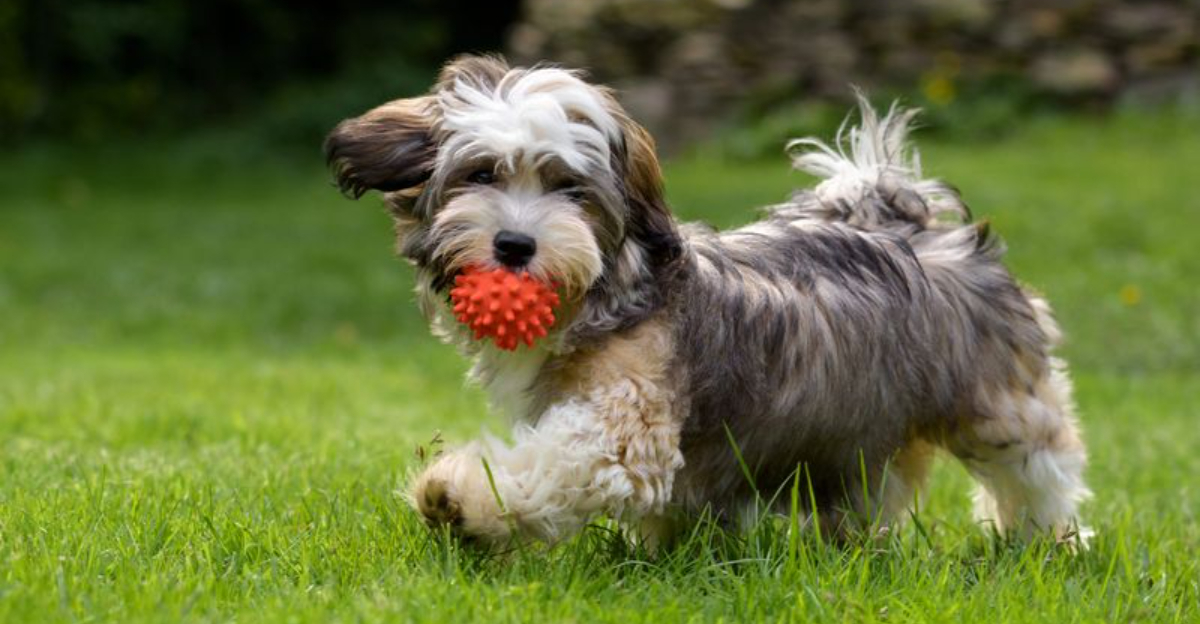Choosing the right furry companion for your golden years in Massachusetts is all about finding the sweet spot between love and low-maintenance. The ideal breed brings comfort, companionship, and plenty of tail wags, without putting a strain on your retirement budget.
Exactly these 11 dog breeds offer a great mix of manageable size, senior-friendly temperaments, and solid health, meaning fewer surprise visits to the vet and more time enjoying life together.
1. Bichon Frise: Cloud-like Companions with Minimal Health Concerns
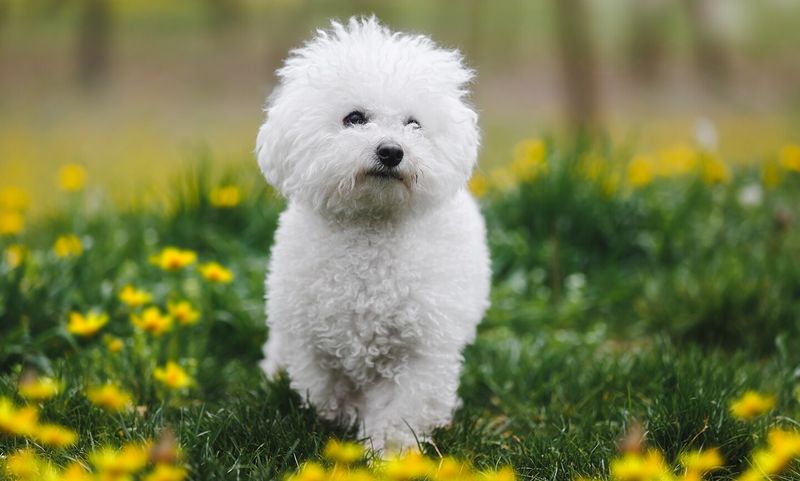
These fluffy white charmers weigh around 12-17 pounds but pack unlimited joy into their small frames. Their hypoallergenic coats mean fewer respiratory issues for owners, while their sturdy constitution typically avoids the joint problems plaguing larger breeds.
Regular grooming prevents skin problems that might otherwise require veterinary intervention. With average lifespans of 14-15 years, Bichons offer Massachusetts retirees long-term companionship without the financial strain of chronic health conditions.
2. Cavalier King Charles Spaniel: Royal Companions with Budget-Friendly Care
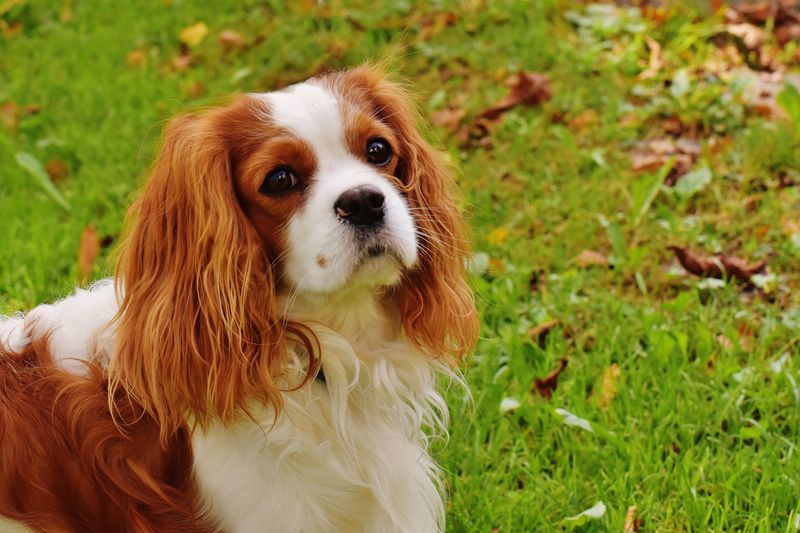
Those soulful eyes aren’t just for show – Cavaliers genuinely bond with their owners on a remarkable level. Their moderate exercise needs align perfectly with a retiree’s pace, requiring just short daily walks around your Massachusetts neighborhood.
While they can develop heart conditions later in life, early screening and preventative care keep costs manageable.
Their silky coats need only weekly brushing, avoiding the expensive grooming appointments other breeds require monthly.
3. Boston Terrier: Massachusetts’ Native Son Keeps Costs Down
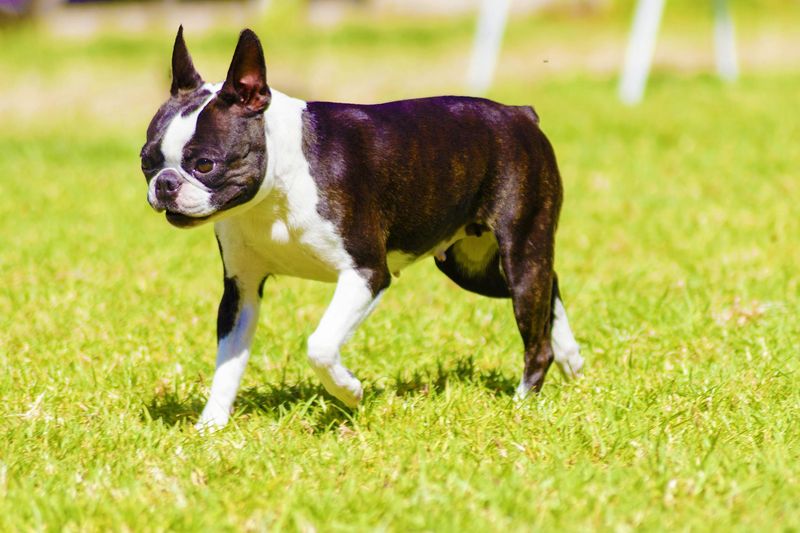
As the official state dog of Massachusetts, these tuxedo-wearing gentlemen already feel right at home in your Bay State abode! Their short coats shed minimally and require virtually no professional grooming – just a quick wipe-down keeps them looking dapper.
Boston Terriers typically live 13-15 years with relatively few breed-specific health concerns. Their moderate energy level means they’re content with brief walks rather than demanding hikes, reducing the risk of expensive joint injuries common in more athletic breeds.
4. Miniature Poodle: Brainy Buddies with Brilliant Health Records

I’ve personally known three Mini Poodles who lived past 16 with minimal health issues – their intelligence is matched only by their longevity! These 10-15 pound packages of personality adapt beautifully to apartment living common among Massachusetts retirees.
Their hypoallergenic coats prevent common skin allergies, though regular grooming is necessary. Poodles’ legendary intelligence means they’re quick to learn household routines and rarely develop destructive behaviors that might lead to emergency vet visits.
5. Shih Tzu: Ancient Companions with Modern Health Benefits
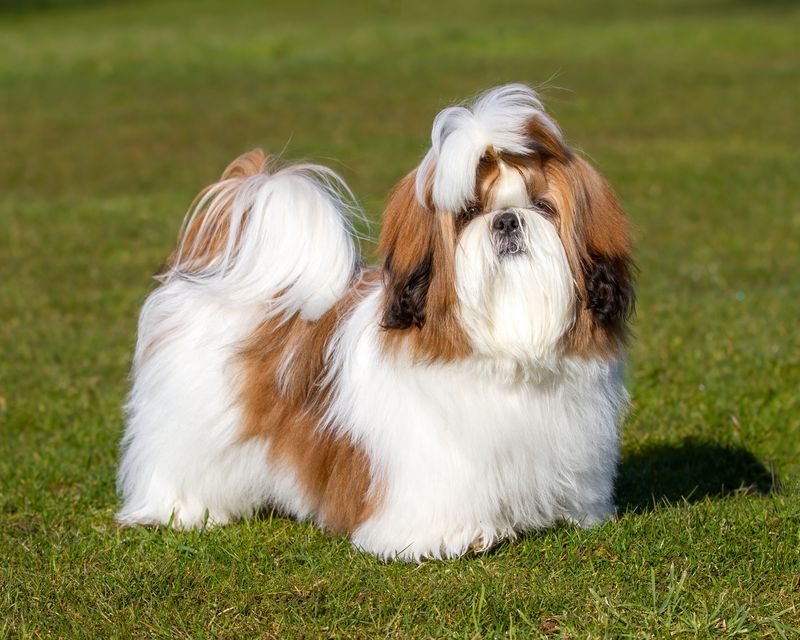
Originally bred as palace companions for Chinese royalty, these little lions (their name literally means “lion dog”) continue their centuries-old tradition of devoted companionship. Their small size means medication dosages cost less when needed.
Despite their luxurious coats, Shih Tzus are surprisingly robust health-wise. Regular eye cleaning prevents infections, while their minimal exercise requirements suit retirees perfectly.
Most importantly for Massachusetts winters, their double coats provide natural insulation against cold weather.
6. Greyhound: Retired Racers Make Surprisingly Economical Pets
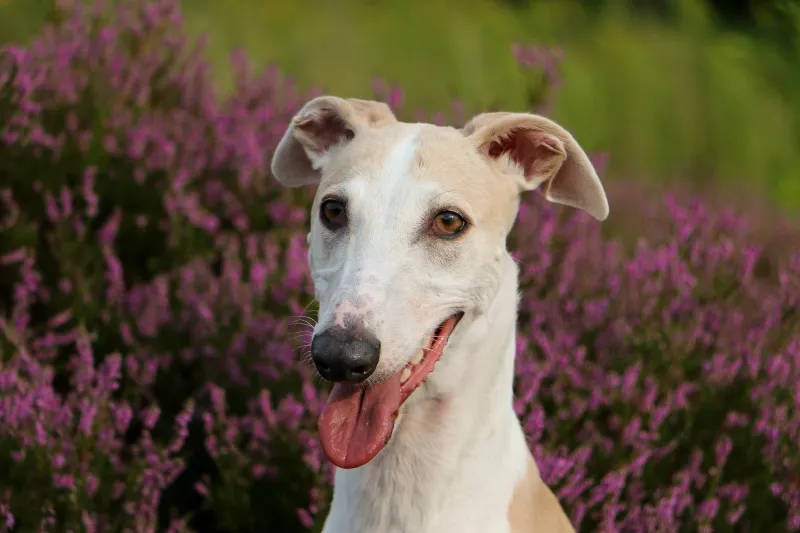
Don’t let their racing background fool you! Adopted retired greyhounds are actually world-class couch potatoes who need surprisingly little exercise beyond a daily walk. Short coats require minimal grooming – a huge savings over fluffier breeds.
Massachusetts has several greyhound adoption groups connecting seniors with these gentle giants. Despite their size, greyhounds typically have fewer joint issues than other large breeds.
Their calm demeanor in the home means less stress-related destruction and fewer emergency vet visits.
7. Maltese: Tiny Treasures with Tremendous Health Records

These pint-sized pups have been perfecting the art of companionship for over 2,800 years! Weighing under 7 pounds, Maltese require minimal food, a significant savings over larger breeds. Their small size means they’re easily transported to vet appointments without special accommodations.
Despite their delicate appearance, Maltese typically enjoy 12-15 healthy years. Their biggest health expense is usually dental care, easily managed with regular home brushing.
For Massachusetts retirees in apartments or condos, these quiet little companions rarely trigger noise complaints.
8. Pembroke Welsh Corgi: Short-Legged Loves with Sturdy Health
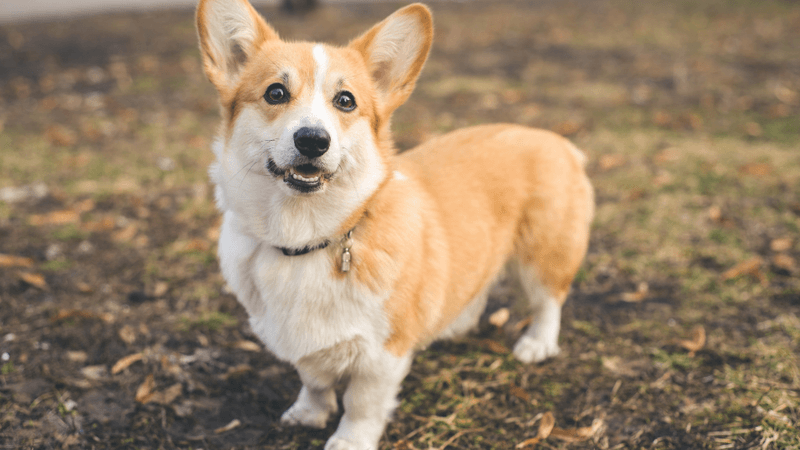
Corgis combine the affection of small breeds with the sturdiness of working dogs. The thick double coats of these dogs handle Massachusetts winters beautifully while requiring only weekly brushing. Originally bred as herding dogs, Corgis have historically needed good health to work long days.
This breeding history translates to fewer inherited conditions than many purebreds. Their moderate exercise needs, satisfied with daily neighborhood walks, prevent obesity, a major contributor to expensive health problems.
9. Beagle: Merry Mutts with Minimal Medical Needs

Charlie Brown’s loyal Snoopy represents this breed perfectly – friendly, adaptable, and remarkably healthy! Beagles typically live 12-15 years with few breed-specific health concerns, making them budget-friendly companions for Massachusetts retirees.
Their short coats need minimal grooming, just occasional brushing to reduce shedding. Beagles’ moderate size (20-30 pounds) means lower food costs and smaller medication doses when needed.
Originally bred as pack animals, they genuinely enjoy human company and rarely develop separation anxiety that leads to destructive behaviors.
10. Havanese: Cuban Cuties with Cost-Effective Care

These 7-13 pound bundles of joy have surprisingly few genetic health issues compared to other small breeds. Their non-shedding coats prevent many common skin allergies. Havanese adapt beautifully to apartment living common among retirees.
Their playful personalities keep seniors active without demanding strenuous exercise. As a bonus, their remarkable trainability means fewer behavior problems that might otherwise lead to property damage or injury-related vet visits.
11. Mixed-Breed Senior Dogs: Rescue Champions with Predictable Health

Massachusetts shelters overflow with middle-aged and senior mixed-breed dogs whose health histories are already established – no surprises! Adopting a 7+ year old dog means avoiding costly puppy vaccines and unpredictable genetic conditions that might appear in youth.
Many rescues offer reduced adoption fees for seniors adopting seniors. The gratitude these second-chance pups show their adopters is immeasurable.
Best of all, mixed-breed dogs typically have fewer genetic health issues than purebreds due to their diverse gene pools.
